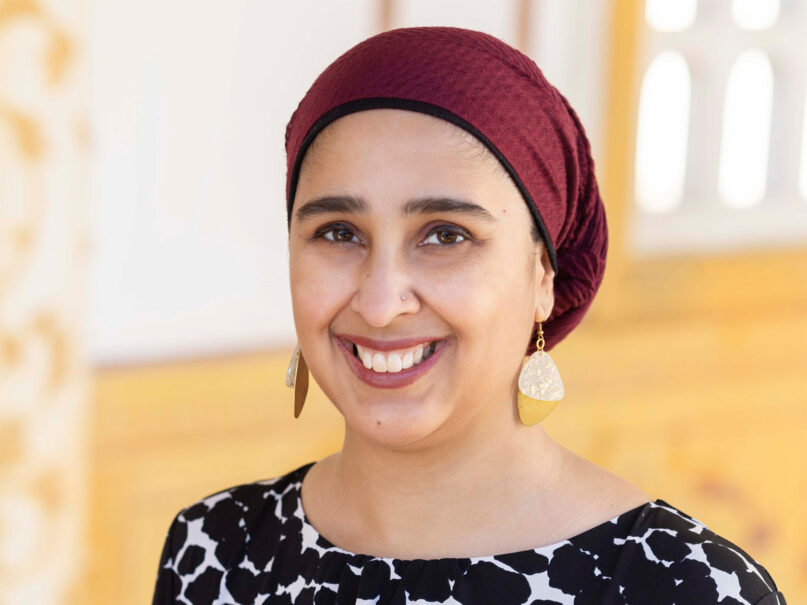(RNS) — Many religious communities struggle to discuss sex in a way that is both grounded in tradition and affirming of their members’ modern experience of love, attraction and gender. What is the cultural custom of a faith, and what is a religious requirement? What are norms, and what are mandates?
It’s no small feat when faith leaders are successful in creating a safe space for these kinds of intimate conversations, especially, perhaps, faith communities that struggle with talking about sex openly.
More than a decade ago, Nadiah Mohajir, a Pakistani American Muslim and a consultant at the U.S. Department of Health and Human Services in her native Chicago, began to see the extent to which fellow Muslims needed culturally aware information about healthy relationships, sexually transmitted infections and pregnancy. Long a confidant for friends dealing with such issues, she saw a deep unmet need for a place where Muslims could talk about sexual health as well as gender-based violence.
“When you go to public school, your teachers don’t have that conversation about faith,” said Mohajir in a recent interview, “and when you go to Islamic school your teachers may touch upon puberty or menstruation or even relationships, but they’ll do it from a way where they’re focused strictly (on) hygiene. They don’t really talk about relationships and dating and consent, because we’re technically not supposed to be having sex until we’re married.”
After some initial pilot programs, Mohajir founded HEART, now a national nonprofit that works to, as its website says, “promote sexual health, uproot gendered violence and advance reproductive justice by establishing choice and access for the most impacted Muslims.”
HEART was conceived as a “third space” — not the home and not the mosque — that provides muslims the safety and openness they need to discuss issues about their bodies, while honoring Muslim traditions.
“We’re just going to talk about it all,” said Mohajir, “and we’re going to do it in a way that’s still aligned with our faith. Many of our participants have shared with us that our programs and workshops have deepened their faith and deepened their understanding of Islam.”
Those participants now number in the thousands from across the country. They have not only taken counsel from its staff, but built supportive relationships with each other.
She is careful to say that HEART doesn’t bear the “religious authority of scholars.” Rather, its staff and organizers invite women into a “deeper dive into our tradition,” Mohajir said. “We’re not here to debate religious law, but we acknowledge that faith and sexuality intersect.” Its programs focus on small groups, active participation and the open sharing of individual experiences.
Nor does HEART discuss sex and other personal choices in terms of the common binary of “good Muslims” and “bad Muslims.”
“We don’t want to play that game,” Mohajir said, “and instead affirm that if you identify as a Muslim, you’re welcome, because you need to access the same information as everyone else. Regardless of your identity, your orientation, or your religious practices as a Muslim, you have a place here. In many ways, this is an affirmation of faith.”
Mohajir said that this stance is in keeping with Islamic tradition. “Islamic law… and Islamic tradition,” she said, “are not as narrow as people think,” noting that the Scriptures that form Islam’s moral code “have been interpreted by thousands of people for a millennium and a half.”
Mohajir urges HEART’s clients to venture into minority opinions on Islamic tradition and its dialogue with the thought championed by the majority. “There are always dominant understandings of certain religious law, but … we lift up the non-dominant — notably understandings of Islam … written and interpreted by amazing women.”
She stresses that HEART never tells Muslims what to believe or do. Instead, her staff encourages Muslims to reflect on how their beliefs inform their attitudes to think more critically about the decisions that they make. Islam, they say, should be a resource of wisdom that they draw upon “from a place of their empowerment, not shame and stigma.”
Participants in HEART’s “small group work around case studies and personal experiences,” she said, and can often “rekindle their interest in finding a new sort of connection to this faith that they initially thought, maybe, they no longer belonged.”
HEART engages a far wider swath of Muslims than many mosques and community organizations — people Mohajir calls “Muslims living on the margins.”
“By that I mean survivors (of sexual violence and relationship violence), LGBTQ people and those who have experienced pregnancy loss or abortion,” Mohajir clarified. “It’s not uncommon for Muslim spaces to have cultures of shame and blame around those experiences and identities. And, as a result, a lot of those folks feel iced out.”
HEART’s safe space, rooted in compassion and belonging, has also, in this sense, made Islam a safe space again. “It reconnects people to community and helps them feel like a part of Islam once again,” said Mohajir. “We’ve been able to help people recreate connection and give them the permission to identify as a Muslim — along with however else they identify as human beings.”





